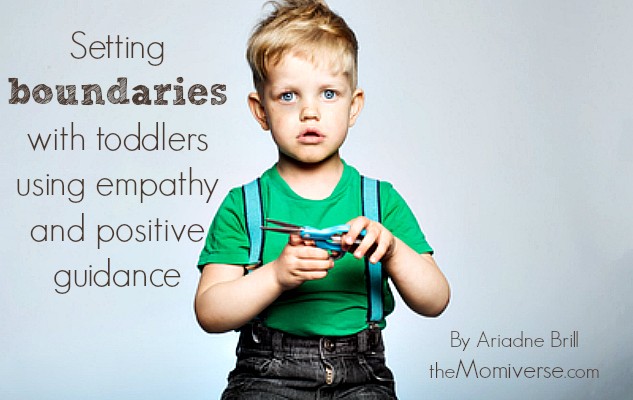
Your hair fell off mama. I caught it for you.
That’s what I heard one morning as I was waking up. Before me, stood my 2.5 year old, scissors in one hand, a clump of my hair in the other.
In a mixture of sleepiness and surprise I gently took the scissors away and replaced them with my hand. Together we shuffled to the nearest mirror. My tot was now very quiet, watching me wrinkle my face as I investigated the damage. The hair that had fell off was about 8 inches in length. It was quite a bit of hair. What remained of it was sticking up straight. Bed hair had a whole new meaning.
“Frowning. You are frowning mama,” my toddler said. While I wasn’t saying much, I kept thinking, why, why, why would my toddler do this?! But I didn’t ask.
“How about we go make breakfast?” I said instead. Because I was hungry, sleepy and surprised, I knew it was best to postpone any conversations on this hairy situation. My tot had made quite the mistake. But it was already done. And with my emotions running high, this wasn’t the right moment to talk about it.
Toddlers need loving guidance and they also need empathy and forgiveness.
Children have a basic need to feel loved and accepted by their parents. As they learn how to balance curiosity, impulses and our expectations, toddlers will make mistakes and get into mischief. Sometimes they will offer a tall tale to safeguard that need to be loved and accepted, i.e. Your hair fell off mama. I caught it for you.
These tall tales are signs of healthy development – of an active, budding understanding of human relationships and personal boundaries. Such tall tales and mistakes are excellent opportunities for connecting and offering loving guidance.
A very valuable tool in helping toddlers learn personal boundaries and the value of honesty is Time In. (Also sometimes referred to as meeting on the couch, reflection time, time out together, talking it out.) This tool is about intentionally setting aside time to allow for children to flex their empathy skills and reflect on their choices.
Time In in action
So back to the hair incident… On that morning, after breakfast, and with carefully chosen words, my toddler and I had some time in. First I took some time to connect with my toddler, and then we talked about this experiment gone awry.
Connection (We sat on an arm chair together)
“How were the peaches?”
“Tasty!”
“I thought they were so sweet today. And the bananas?”
“Sticky. Sticky! Kiss you with sticky banana kisses?”
“Uhmm, sticky kisses! I like sticky kisses!”
“I have kisses for you too.”
Laughter.
Guidance
“So…I’m surprised and upset about my hair,” I said with a gentle smile but concerned eyes.
“It was in your face when you were sleeping. Oh mama, I did scissors NOT on paper.” (This was a great clue that my toddler was well aware of our family rules for the scissors.)
My toddler cried in my arms. The mistake was being processed. The worry was being let go. And the information about scissors and hair not being a good idea was sinking in.
“Sorry. I sorry to you.” My toddler said as tears subsided.
“I can see you are sorry…You know you can use scissors on paper – or ribbon. I can give you some later too.”
My tot nodded in understanding.
Later that day, my tot had great fun cutting ribbons and paper. And gently, I reminded my tot one more time that it was not alright to use scissors to cut my hair – or anyone else’s hair either.
For the love of experiments
Toddler experiments can bring up in us feelings of pride, joy, and happiness – like when a toddler learns to climb and jump “all by MEself!” It can also bring up fear, anger, and annoyance – like when scissor skills are practiced on hair or flour is dumped and jumped in.
The feelings and reactions we have to these experiments are often directly related to how clear or unclear we are being with our personal boundaries and limits. When boundaries are crossed feelings tip towards annoyance and frustration. Those feelings can be clues for us to take the time to examine and clarify boundaries and limits with play, stories, music, time in, or other loving ways. It’s not necessary or helpful to isolate or punish toddlers when they cross boundaries.
Toddlers will cross many, many boundaries and expectations as they grow and learn. Our job as parents can be to remember the importance, and positive impact, respectful loving guidance has on our child’s wellbeing. When we focus on building encouraging, loving, and understanding relationships, we can actively create an environment in which toddlers will feel safe to make mistakes, accept our guidance and ultimately learn.
If your child has been frequently crossing boundaries and getting into mischief, it may be worthwhile to reflect on how you are setting boundaries and to be proactive about creating a safe, toddler proof home. Besides time in, other gentle parenting tools that are helpful are setting kind and clear limits, using daily special time and following predictable routines. Most of all, remember to focus on communicating with love, connection and trust.
Has your toddler crossed any boundaries or gotten into mischief lately? What was it about and how did you handle it?
This Week's Articles Read, learn, live
-
 Summertime grilled vegetables
Summertime grilled vegetables
-
 5 Ways to make this summer full of unforgettable family fun
5 Ways to make this summer full of unforgettable family fun
-
 10 Reasons to take a family vacation in Puerto Vallarta
10 Reasons to take a family vacation in Puerto Vallarta
-
 5 Fun tips for spring cleaning with kids
5 Fun tips for spring cleaning with kids
-
 10 chick flicks with New Year’s Eve scenes
10 chick flicks with New Year’s Eve scenes
-
 The day after Christmas: 5 ways to handle the biggest downer of the year
The day after Christmas: 5 ways to handle the biggest downer of the year
{ 1 comment }
I have big problem with this. I am at total loss to handle situations when i see her crossing the limits. What must i do when i see her crossing limits and sTopping her leads to a Tantrum